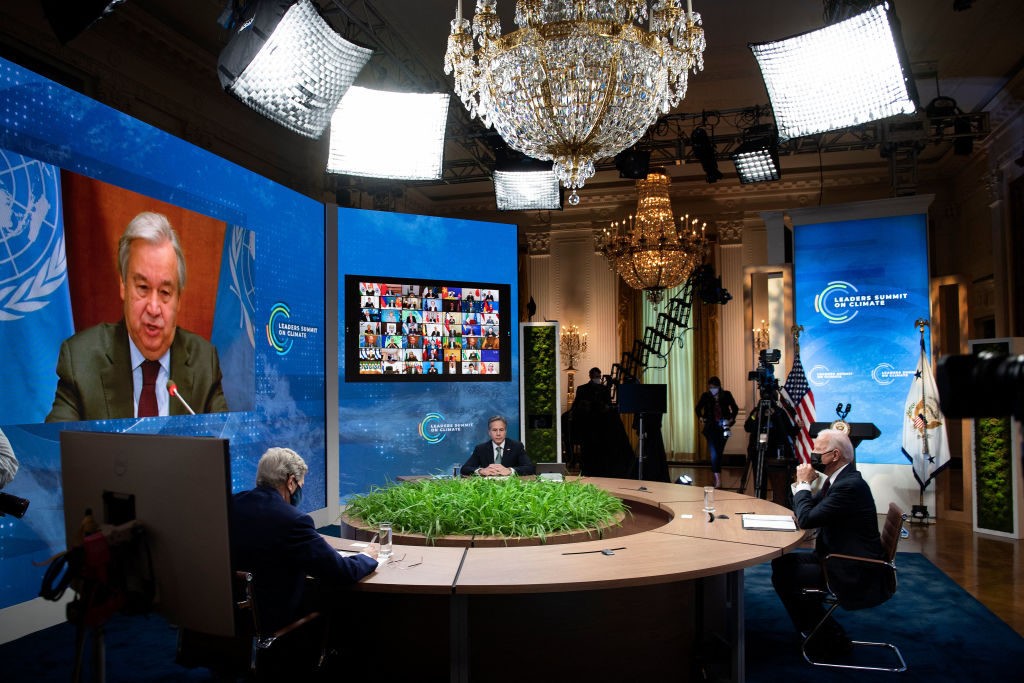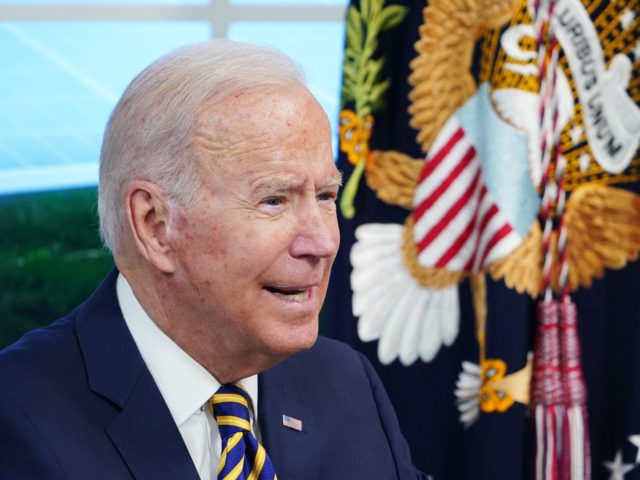President Joe Biden’s domestic agenda faces major setbacks in Congress, as Democrats debate the timing and level of spending for his second budget reconciliation spending bill.
The House Budget committee will not mark up Biden’s $3.5 trillion proposal this week, according Punchbowl News, which means it will not be ready in time for to pass the House in unison with the president’s bipartisan infrastructure package.
House Speaker Nancy Pelosi (D-CA) promised Democrat moderates she would hold a vote on the bipartisan package by September 27, even as the more leftist wing of the party has threatened to withhold their votes for that package without the $3.5 trillion package passing at the same time.
Senate moderates are also stressing that Biden’s $3.5 trillion is too much spending too quickly.
Sen. Joe Manchin (D-WV) has shared his desire for a “strategic pause” on spending until 2022.
Sen. Krysten Sinema (D-AZ) has reportedly warned Pelosi and Biden that if Congress fails to meet the September 27 deadline for the infrastructure package, she will not support the $3.5 trillion reconciliation bill.
The worst case scenario for Biden is that both bills stall without enough Democrat support on both sides to push them across the finish line.
The president would need House Republicans to help save his infrastructure package, if the far-left Democrats follow through on their threat to oppose it without the $3.5 trillion bill advancing.
The bill also hit a setback on Sunday evening, as the Senate Parliamentarian ruled that Democrats could not include plans for a massive amnesty in the budget reconciliation package.

(From L-R) U.S. envoy for climate John Kerry, U.S. Secretary of State Antony Blinken, and U.S. President Joe Biden listen as United Nations Secretary General Antonio Guterres speaks on screen during a climate change virtual summit from the East Room of the White House campus April 22, 2021. (BRENDAN SMIALOWSKI/AFP via Getty Images)
The parliamentarian ruled a widespread amnesty was a “tremendous and enduring policy change that dwarfs its budgetary impact,” a conclusion that many Democrats expected, but supported the idea anyway to satisfy amnesty activists.
Biden’s political capital has also suffered as polling shows his approval numbers dipping after his disastrous exit from Afghanistan and his inability to control the coronavirus pandemic.
As his domestic agenda struggles, Biden’s attention will be shifted towards globalism as he attends the United Nations summit in New York.
In his first speech to the United Nations as president, Biden plans to pivot from former President Donald Trump’s “America First” foreign policy and urge nations to work together on issues like climate change.

COMMENTS
Please let us know if you're having issues with commenting.